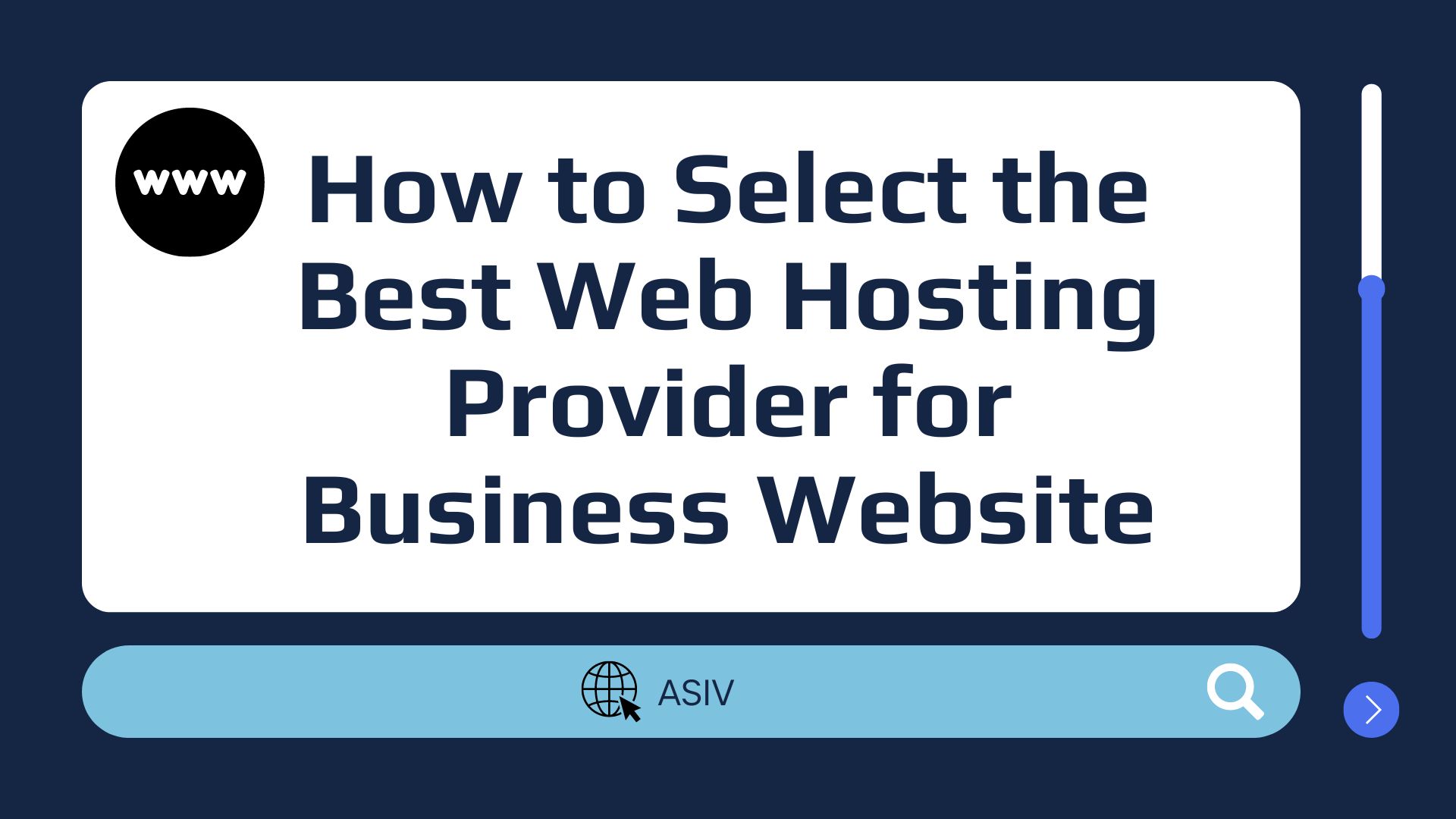Choosing the best web hosting provider for business isn’t just a task—it’s a critical decision that sets the foundation for your website’s success. Whether you’re launching a new online venture, taking your small business to the digital realm, or scaling an e-commerce platform, selecting the right hosting service can dramatically influence your site’s performance, security, and growth potential.
With a myriad of options like Bluehost, InterServer, Liquid Web, NAME.com, Site123, and Hostinger, each offering unique advantages, navigating the web hosting waters can seem daunting. Yet, by focusing on your specific needs and armed with the right knowledge, you can make an informed choice that aligns perfectly with your business objectives. Let’s dive into how to pinpoint the ideal host for your digital journey, ensuring your website finds its best home online.
Table of Contents
Understanding Web Hosting Needs
When it comes to establishing an online presence, the foundation of your digital footprint lies in the web hosting service you choose. This decision is influenced heavily by the nature of your website—be it a personal blog or a business website—and the traffic volume you anticipate. Each type of site has distinct requirements that dictate the ideal hosting solution, making it crucial to understand these needs before making your selection.
Personal Blogs vs. Business Websites
Personal blogs and business websites serve different purposes and, consequently, have varied hosting needs. Personal blogs, often characterized by their casual tone and individualistic content, typically experience fluctuating traffic that depends on the popularity of the content and the blogger’s promotional efforts. For these sites, affordability and ease of use are key, with an emphasis on platforms that offer simple content management systems (CMS) and room to grow.


On the flip side, business websites represent a professional online presence aimed at promoting services or selling products. These sites demand high reliability and uptime, given that any downtime directly translates to lost revenue and potential harm to the brand’s reputation. Business sites often require robust security features to protect sensitive customer data, alongside scalable solutions that can accommodate spikes in traffic during promotional periods or as the business grows.
Assessing Your Site’s Traffic Expectations
Understanding your site’s potential traffic is pivotal in choosing the right web hosting provider. Estimating the volume of visitors can help you select a hosting package that offers the bandwidth and resources necessary to ensure a smooth user experience without paying for unnecessary extras. For new sites, starting with a scalable, shared hosting plan might suffice, allowing you to upgrade as your traffic increases. Meanwhile, established sites with a clear traffic pattern will benefit from more dedicated resources, such as VPS or dedicated hosting, to maintain performance during peak times.
Evaluating these aspects carefully will not only ensure that your site remains operational and efficient but also cost-effective. Choosing the right web hosting service—by accurately understanding your web hosting needs—lays the groundwork for your site’s success, whether it’s a deeply personal project or a critical business venture.
Key Factors in Choosing a Web Hosting Provider
When you’re on the hunt for the best web hosting provider for business, there’s a bunch you gotta keep an eye out for. It’s not just about finding a spot for your site to call home; it’s about making sure that home is rock solid, fast as lightning, always there when you need it, can grow with you, and keeps the bad guys out. Let’s break it down into bite-sized pieces, so it’s super clear what matters most.
Scalability
Select a provider that offers scalability options, allowing you to easily upgrade your hosting plan as your website grows.
speed
Choose a provider known for high performance and fast load times, which are critical for user experience and SEO rankings.
Technical support
Opt for a hosting provider with reliable, 24/7 customer support to address any issues promptly, ensuring your website runs smoothly.
reliabiliti
Reliability in the context of web hosting refers to the consistency and dependability of the hosting service, ensuring that a website is available and accessible to users without interruptions.
security
Prioritize security measures such as SSL certificates, backups, and firewalls to protect your website from cyber threats and data loss.
First up, we’ve got reliability. Think of it as the superhero of your website’s world. It’s all about making sure your site is up and ready for action anytime, anywhere. If your site’s down, nobody can visit, and that’s a big no-no. Look for a host that boasts about being up 99.9% of the time. That’s the gold standard right there.
Next, let’s talk speed. Ever clicked on a site and waited forever for it to load? Yeah, no one’s got time for that. Speed is key because if your site is slow, visitors will bounce faster than a kangaroo on a trampoline. A speedy website keeps visitors happy and helps your site rank better on Google, too.
Technical support is your safety net. Even the pros need a helping hand sometimes. Whether it’s 3 AM or the middle of your busiest day, having a team ready to help you out—stat—is priceless. You want a web hosting team that’s on their toes, ready to help you tackle any issue, big or small.
Scalability is about thinking big. Your business isn’t going to stay the same size forever, right? You need a web host that grows with you. Starting small is fine, but as you get bigger, your host should make it easy to upgrade and expand without a hitch.
Last but definitely not least, we’ve got security. This is your digital fortress. With all the hackers and cyber threats out there, you need a web host that’s equipped with the latest security gadgets to keep your site safe and sound. This includes things like firewalls, SSL certificates for secure connections, and regular backups just in case something goes wrong.
When you’re looking for the best web hosting provider for business, keep these key factors in mind. They’re the recipe for a successful, stress-free website that’s ready to take on the world.
Types of Web Hosting Services
When you’re venturing into the online world with your business, picking the right place for your website to live is crucial. Let’s simplify the options for web hosting services, keeping in mind you’re on the lookout for the [best web hosting provider for business]. Each type of hosting service caters to different stages and sizes of businesses, from startups to sprawling enterprises, and understanding these can help you make the best choice for your digital buddy.
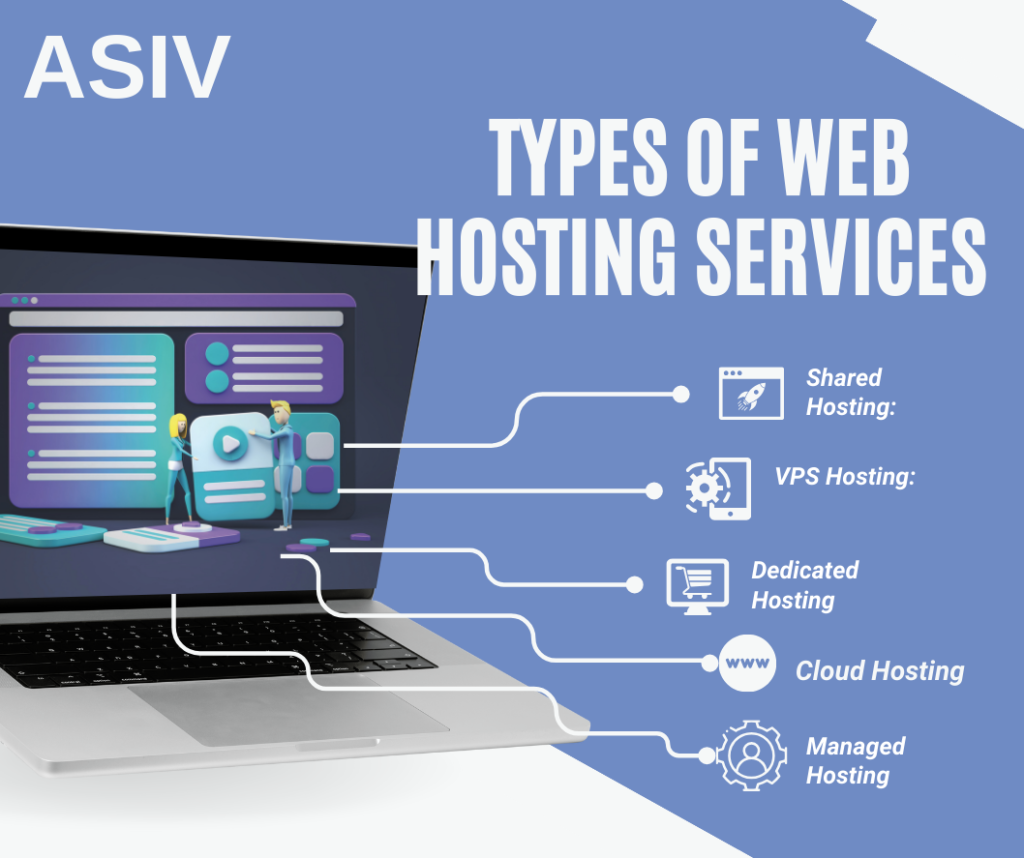
- Shared Hosting: It’s like renting a workspace in a coworking space. You share the overall resources (like the internet, electricity) with others on the same server. It’s the most budget-friendly option, perfect for smaller websites or those just starting out.
- VPS Hosting: Think of this as having your own dedicated office within a larger office building. You’re still in a shared environment but you have clear boundaries and dedicated resources. This is a step up for businesses that need more control and better performance than what shared hosting offers, but without the high cost of going solo.
- Dedicated Hosting: This is equivalent to owning your entire office building. The server is entirely yours, giving you maximum control, performance, and security. It’s ideal for large businesses with high traffic demands.
- Cloud Hosting: Imagine having an office that can instantly expand or shrink based on your needs. That’s cloud hosting. Your site uses resources spread across multiple servers, offering great flexibility and scalability. It’s perfect for businesses with fluctuating traffic levels.
- Managed Hosting: This is like having a property manager for your office. Regardless of the type of hosting (shared, VPS, dedicated, or cloud), the hosting provider takes care of the maintenance, security, and technical aspects, allowing you to focus on running your business.
Each type of hosting service offers different levels of performance, security, and flexibility, tailored to various business needs and budgets. From the straightforward, cost-effective approach of shared hosting to the robust and powerful dedicated hosting, the scalability of cloud hosting, and the convenience of managed hosting, there’s an option out there that’s the perfect fit for your business’s online presence.
Special Considerations for E-commerce Sites
When it comes to running an e-commerce site, the stakes are sky-high. Your digital storefront needs to be open 24/7, offering a secure, swift, and seamless shopping experience. Here’s where the quest for the [best web hosting provider for business] becomes even more critical, especially for e-commerce platforms. Let’s dive into the special considerations that e-commerce sites demand, ensuring your hosting choice is spot-on for your online business needs.
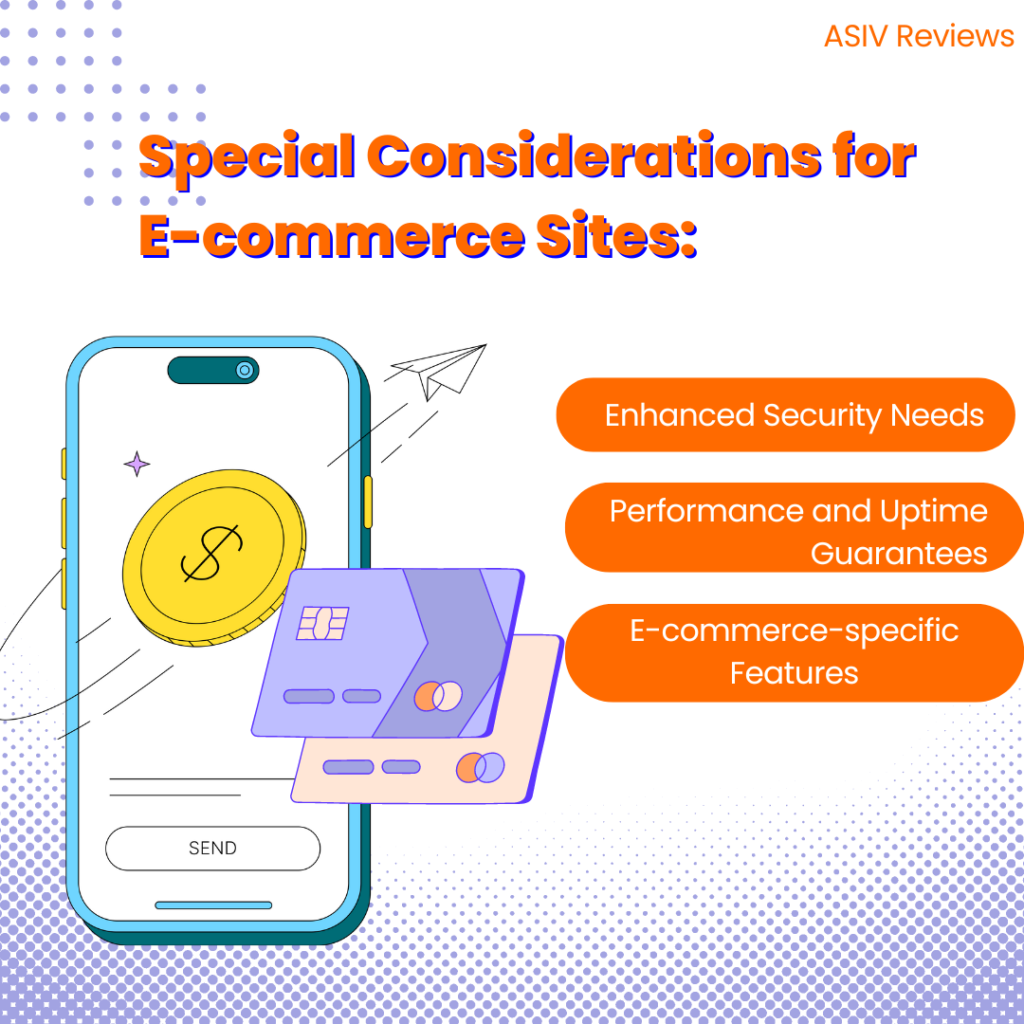
Enhanced Security Needs: For e-commerce sites, security isn’t just a feature; it’s the foundation. With online transactions, you’re handling sensitive customer information, including credit card numbers and personal data. The [best web hosting provider for business] understands the gravity of this responsibility and offers robust security measures like SSL certificates, encryption, and compliance with PCI (Payment Card Industry) standards to keep your customers’ data safe from prying eyes. Ensuring your site is a fortress against cyber threats not only protects your customers but also builds trust, a crucial currency in the online shopping world.
Performance and Uptime Guarantees: Ever clicked on a slow-loading site and bounced faster than a rubber ball? Your customers will do the same. Performance (how fast your web pages load) can make or break your e-commerce site. The [best web hosting provider for business] guarantees blazing-fast speeds and impressive uptime records, ensuring your online store is always open, pages load quickly, and customers can shop without frustrating delays. Remember, even a second’s delay can lead to significant sales losses in the e-commerce game.
E-commerce-specific Features: Running an e-commerce site is a whole different ballgame compared to a standard website. This means you need specialized features to manage your online store effectively. Look for a hosting provider that offers easy integration with e-commerce platforms like WooCommerce, Magento, or Shopify. The [best web hosting provider for business] also provides shopping cart software, payment processing services, and inventory management tools, making it easier for you to focus on selling rather than sweating the technical stuff.
In summary, e-commerce sites require a hosting service that goes above and beyond the basics. The [best web hosting provider for business] for your e-commerce platform will offer top-notch security to protect your customers, ensure your site performs flawlessly under any traffic conditions, and provide the specific features needed to run an online store smoothly. With these considerations in mind, you’ll be well on your way to selecting a web hosting provider that not only meets but exceeds the demands of your e-commerce business, setting you up for online success.
How to Match Hosting Options with Business Requirements
Choosing the right hosting for your business website is a lot like picking out a new office space—it needs to fit your current needs, have room for growth, and align with your future goals. To nail this match, you need to start by taking a good, hard look at your business requirements and then ensure the hosting options you’re considering can meet, if not exceed, those expectations. Here’s how you can do just that, keeping the focus on finding the [best web hosting provider for business] that’s a perfect fit for your online presence.
Evaluating Your Business Needs
First off, let’s talk about assessing what your business actually needs from a web hosting service. It’s crucial to consider several key factors:
- Website Traffic: Anticipate the amount of traffic you expect. If you’re just starting out, you might not need the bandwidth that larger, more popular sites do. However, it’s wise to choose a hosting provider that can scale up as your site grows.
- Type of Content: Will your site be heavy on visuals and videos, or will it be more text-focused? Rich media content demands more resources, so you’ll need a robust hosting plan to support that.
- E-commerce Features: If you’re selling products or services directly from your site, you’ll need a host that offers e-commerce functionalities, like shopping carts and secure payment gateways.
- Security Requirements: Depending on the nature of your business, your site may require advanced security features to protect sensitive data.
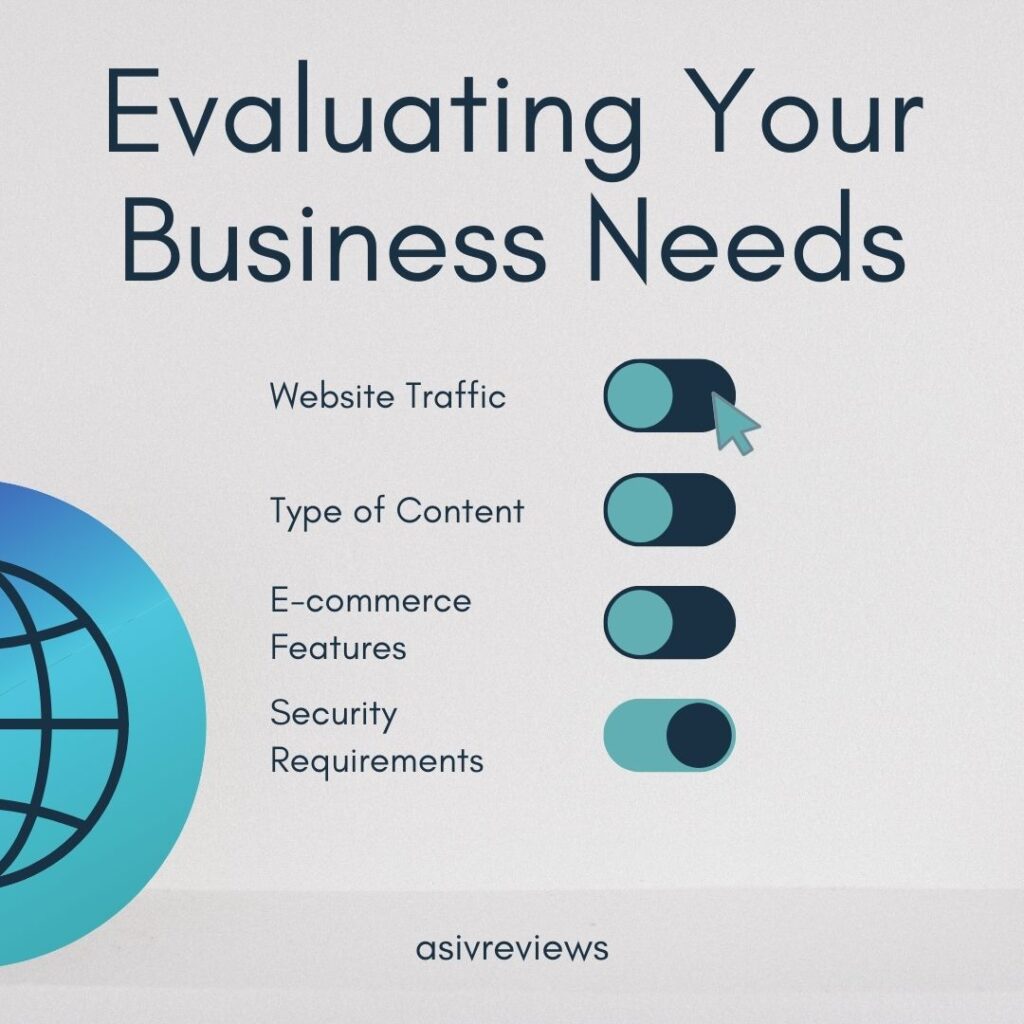
Matching Features with Expectations
Once you’ve got a clear idea of your needs, it’s time to match those with what web hosting providers offer. Here’s where you look for the [best web hosting provider for business] that not only ticks all the boxes but also exceeds your expectations in terms of performance and support.
- Reliability and Uptime: Look for providers that guarantee high uptime (99.9% or higher). This ensures your site is always available to your customers.
- Speed: Your provider should offer fast loading times, as this affects both user experience and SEO rankings.
- Scalability: Ensure the provider can easily upgrade your plan to accommodate growing traffic and resource needs.
- Security: Opt for a host that provides strong security measures, including SSL certificates, backups, and malware protection, especially if you’re handling sensitive customer data.
- Customer Support: The importance of having reliable, responsive support cannot be overstated. Look for providers known for their stellar customer service.
By carefully evaluating your business needs and matching them with the right hosting features, you’ll set the stage for a successful and scalable online presence. Remember, the [best web hosting provider for business] isn’t just about meeting your current needs—it’s about partnering with you as your business evolves, ensuring your online journey is smooth and successful.
Choosing the Best Web Hosting Provider for Business ,Blog and E-commerce
When scouting for the perfect home for your website, it’s crucial to align with a hosting provider that fits your specific needs like a glove. From the cozy corners of personal blogs to the bustling digital storefronts of e-commerce platforms, each type of website has its unique hosting demands. Let’s dive into some general recommendations for different types of websites, spotlighting a few standout companies like Bluehost, InterServer, Liquid Web, NAME.com, Site123, and Hostinger. Each has its strengths, making them potentially the best fit for certain website needs.
Best Hosting for Personal Blogs
For personal blogs, simplicity, ease of use, and cost-effectiveness are key. Bluehost shines in this category, offering user-friendly WordPress integration that’s perfect for bloggers. With Bluehost, getting your personal blog up and running is a breeze, thanks to their one-click install feature, comprehensive support, and affordability, making it a go-to choice for bloggers just starting out. Bluehost Review

Ideal Hosting for Small Business Websites
Small businesses need reliability, scalability, and excellent customer support without breaking the bank. InterServer offers an incredible value proposition with its price-lock guarantee, meaning the price you sign up with is what you continue to pay. Their shared hosting plans are robust and flexible, providing small businesses with the tools they need to grow online. Additionally, InterServer’s commitment to customer service ensures that help is always on hand when you need it.InterServer Review

Top Picks for E-commerce Platforms
E-commerce platforms require a host that can handle more complex needs like high security, excellent uptime, and scalability to manage traffic spikes. Liquid Web stands out for e-commerce hosting with its highly-managed hosting services designed for speed and reliability. They offer a range of VPS, cloud, and dedicated server solutions, all optimized for e-commerce platforms like WooCommerce and Magento, making Liquid Web a top pick for businesses serious about their online sales. Liquid Web Review
Hostinger also deserves a mention here for e-commerce, especially for those looking for a balance between performance and price. With competitive pricing, strong uptime, and support for various e-commerce platforms, Hostinger provides a solid foundation for growing e-commerce sites.
While Site123 and NAME.com offer hosting solutions that can fit various needs, they tend to be more generalist. Site123 is particularly user-friendly, making it a good option for those who want to quickly set up a simple website with minimal fuss. NAME.com, on the other hand, offers a wide range of services from domain registration to website hosting and could be considered for businesses looking to manage everything under one roof.Site 123 Review – Name.com Review

In summary, selecting the right hosting provider depends heavily on your specific website needs—whether you’re penning personal musings, running a small business, or launching an e-commerce empire. Bluehost, InterServer, Liquid Web, and Hostinger each bring something unique to the table, making them excellent choices within their respective niches.
Making the Final Decision
Making the final decision on which web hosting provider to commit to is a big move. It’s like choosing a partner for your digital journey. To ensure you’re making an informed choice, especially when considering options like Bluehost, InterServer, Liquid Web, NAME.com, Site123, and Hostinger, it’s crucial to have a checklist and understand the nitty-gritty of their service agreements. Here’s a breakdown to guide you through this final step.
Checklist Before Signing Up
- Performance and Reliability: Confirm the provider’s uptime guarantee and performance history. Your website’s availability is paramount.
- Scalability: Ensure there’s room to grow. Can you easily upgrade your plan as your site’s traffic increases?
- Security Features: Look for SSL certificates, backups, and malware protection. For e-commerce sites, also check for PCI compliance.
- Customer Support: Test the waters. Reach out to their support with pre-signup questions to gauge responsiveness and helpfulness.
- Pricing Structure: Understand not just the introductory prices but also the renewal rates. Are there any hidden fees?
- User Reviews: What do current and past users have to say? Look for patterns in reviews that could indicate consistent issues or strengths.
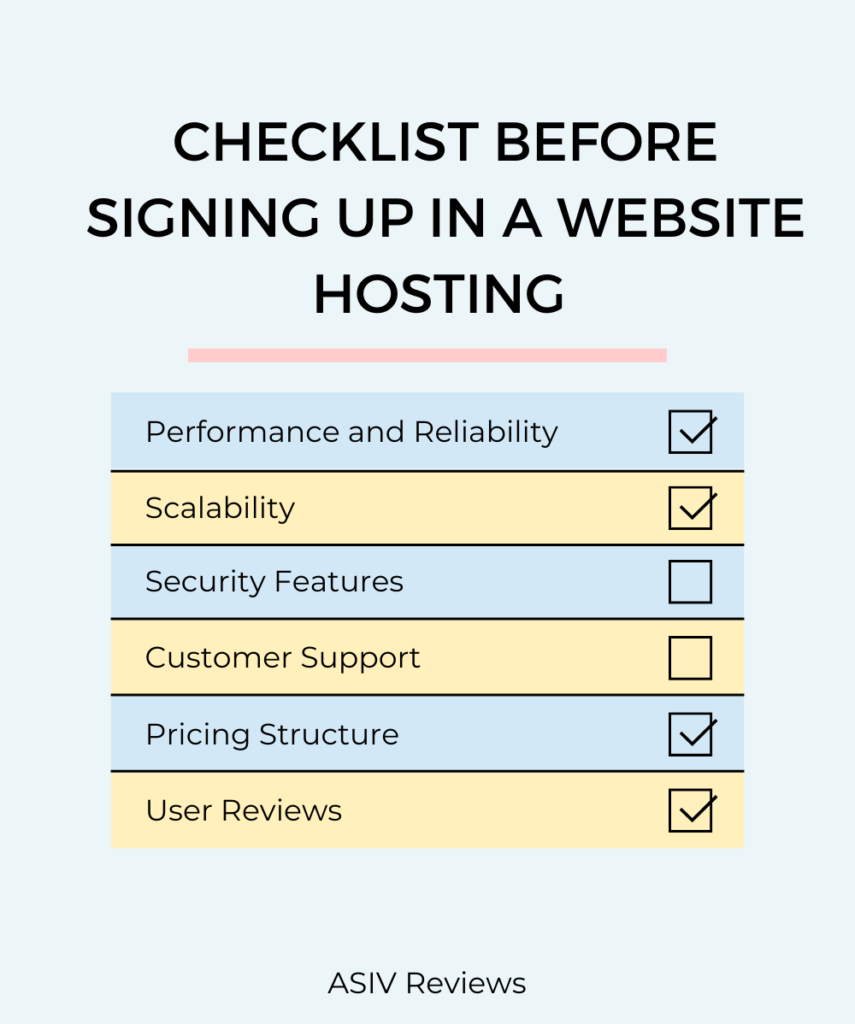
Understanding the Fine Print: Refunds, Upgrades, and Cancellations
- Refund Policy: Most providers offer a 30-day money-back guarantee, but it’s wise to double-check. Are there any non-refundable fees?
- Upgrade Process: How easy is it to move to a higher-tier plan? Can it be done seamlessly without any downtime for your website?
- Cancellation Policy: If you decide to part ways, how straightforward is the cancellation process? Are there any penalties or fees?
By ticking off each item on this checklist and diving deep into the terms of service, you’ll be in a strong position to choose the [best web hosting provider for business] that aligns with your website’s needs and your business goals. Whether it’s the user-friendly interface of Site123, the robust e-commerce capabilities of Liquid Web, the affordable scalability of Hostinger, or the reliable customer service of InterServer, ensuring you’ve thoroughly vetted your options will set you up for online success. Remember, the fine print matters as much as the big promises—understanding both is key to making a choice you’ll be happy with in the long run.

